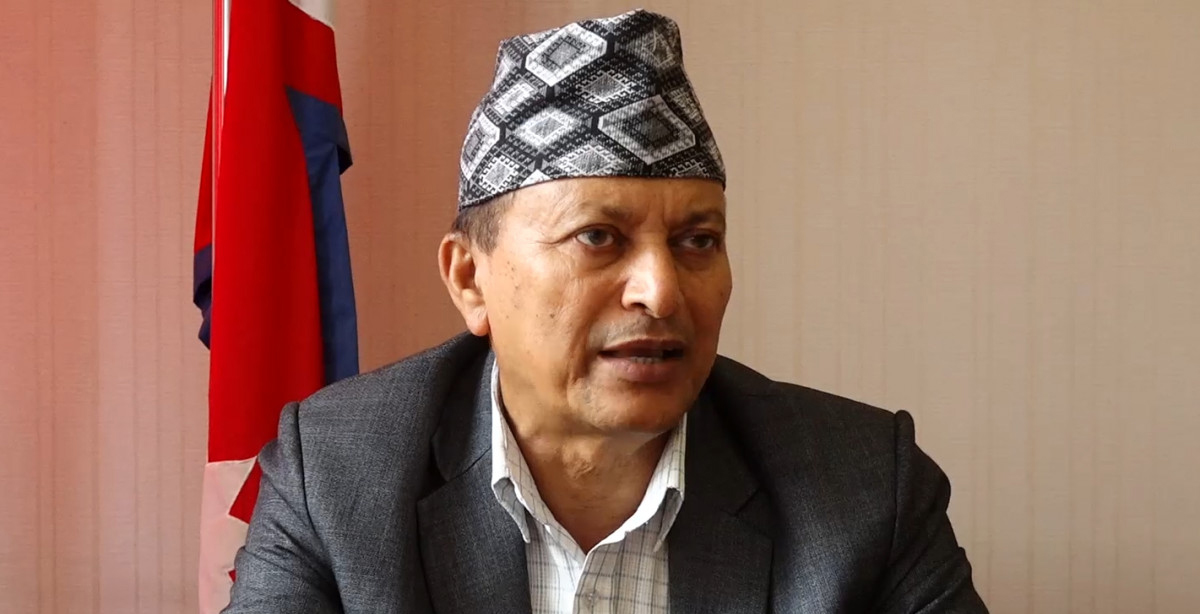The government has initiated discussions with lawmakers who have proposed amendments to the land-related bill as it is preparing to accept the amendments after holding discussions with those lawmakers.
On Monday, the government held a discussion with lawmakers from the ruling Nepali Congress who have filed amendments to the bill.
The meeting took place at the NC parliamentary party office in the Singha Durbar and involved Home Minister Ramesh Lekhak, Minister for Land Management Balaram Adhikari, NC General Secretary Gagan Thapa, Chief Whip Shyam Kumar Ghimire, and other lawmakers who have tabled amendments.
NC lawmakers have insisted that clause-wise discussions be held on their proposed amendments to the land-related bill in the committee concerned.
However, the government has proposed rewriting the land-related bill to incorporate the lawmakers' amendments.
The ruling CPN-UML is making efforts to get the bill passed by a full House, while lawmakers from the NC and other parties advocate for holding discussions on the bill in a committee.
A total of 55 amendments have been proposed to the land-related bill. Fifteen lawmakers from the NC, including General Secretaries Gagan Thapa and Bishwa Prakash Sharma, have tabled amendments to the bill.
Earlier, the land-related bill was included in the tentative agenda of the House of Representatives, but it was removed on the request of NC General Secretary Sharma.
NC lawmaker Rajendra Kumar KC, who participated in Monday’s discussion, said the talks focused on the amendments proposed by lawmakers to the land-related bill.
"We have proposed amendments to the land bill. Today, ministers, general secretaries, the chief whip, and lawmakers discussed them," he told Setopati. "Our stance remains that the land bill should be taken to a committee for extensive discussion."
He noted that the government raised the issue of accepting the lawmakers’ amendments during the discussion. "There’s talk of rewriting the bill to incorporate the amendments proposed by lawmakers, and we will meet again once the bill is finalized," he said, adding that no discussion took place regarding whether the bill should be taken to a full House or a committee.
Stating that an agreement between only the NC and UML would not suffice, lawmaker KC emphasized that the government should hold discussions with all lawmakers who have proposed amendments to the bill.
"There are also other lawmakers who have proposed amendments. The government may need to discuss with them too. They discussed with us today," he said. "For making laws, discussions with just one or two parties are not enough; talks must be held with all lawmakers."
He said that the decision regarding whether the land-related bill should be sent to a committee for discussions or passed by a full House would be based on the consensus of all parties.
The ruling UML is pushing to pass the bill through a full House, while the ruling NC insists on discussing it in a committee.
KC noted that consensus among all parties is necessary as there are differences on issues including unplanned settlements in the bill.
When the land ordinance was introduced, the Janata Samajwadi Party Nepal (JSP Nepal) led by Upendra Yadav decided it could not be passed, and the government had to withdraw it. The JSP Nepal, with three lawmakers, was essential for the government to secure a majority in the National Assembly.
The JSP Nepal has also expressed dissent on the current land-related bill, stating that provisions from the ordinance have been continued. Recently, the JSP Nepal withdrew its support to the federal government.
NC General Secretary Thapa has maintained that the land-related bill should not be passed in its current form and should be taken to a committee for clause-wise discussions.
Both General Secretaries Thapa and Sharma have proposed amendments to prevent land of tea and other industries that exceeds the ceiling from being sold or used for real estate, plot development, or apartment construction.
Under the current land-related act, if industries, companies, or institutions operating continuously purchase land beyond the ceiling for essential purposes, they must apply for approval within three months, justifying the need for excess land.
For such applications, a fee of Rs 150,000 per bigha in the Tarai and Inner Madhes, Rs 50,000 per ropani in the Kathmandu Valley, and Rs 10,000 per ropani in other hilly areas is required to retain the excess land.
The government’s proposed bill states that companies permitted to operate real estate businesses on such land face “no obstacles” in developing plots, constructing houses, or residential units (apartments) for sale. However, it prohibits selling land obtained or approved for purposes other than real estate business.
NC lawmakers Thapa and Sharma proposed an amendment to add a restrictive clause right below this provision, prohibiting real estate business on land allocated for any purpose.
“Exemptions from land ceiling are obtained for tea industries, agricultural farms, or health purposes, but such land is often left fallow and used for real estate business later. We have proposed preventing such situations,” General Secretary Sharma said, adding that it would be appropriate to send the bill to a committee for discussion.
The land-related bill was removed from the House’s agenda after Sharma demanded its removal on July 9.
However, the UML insists on getting the bill passed in its current form by a full House.

